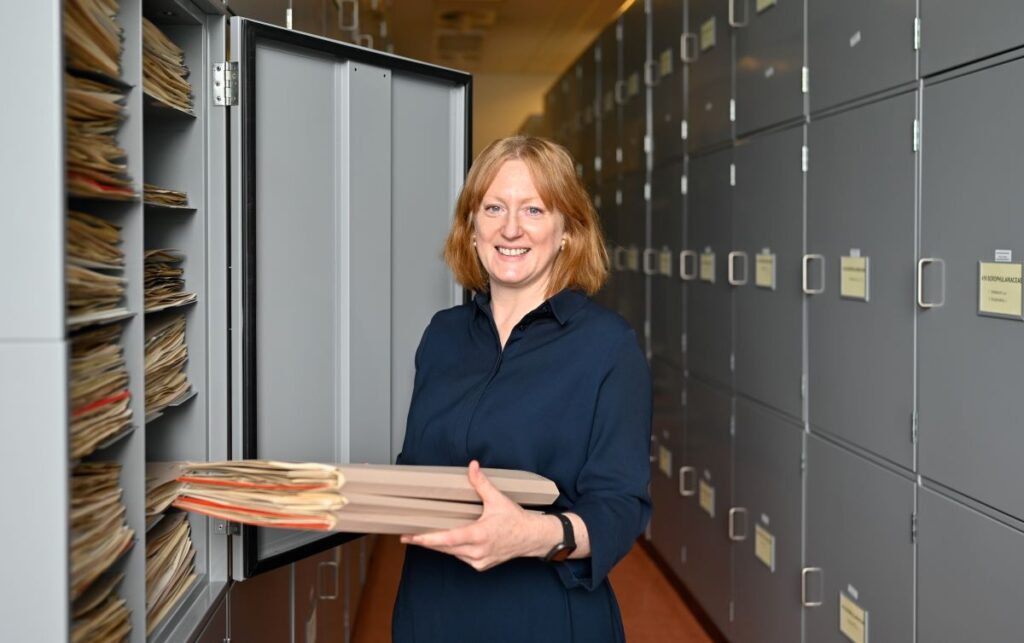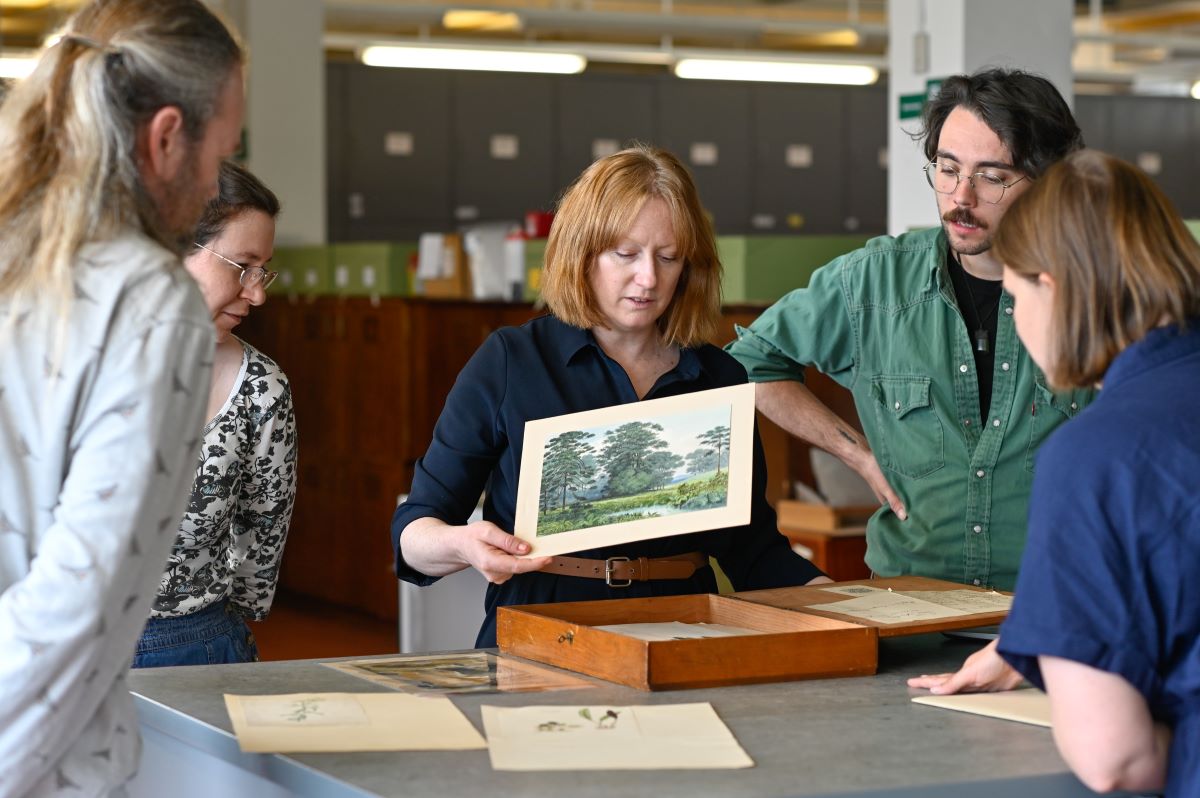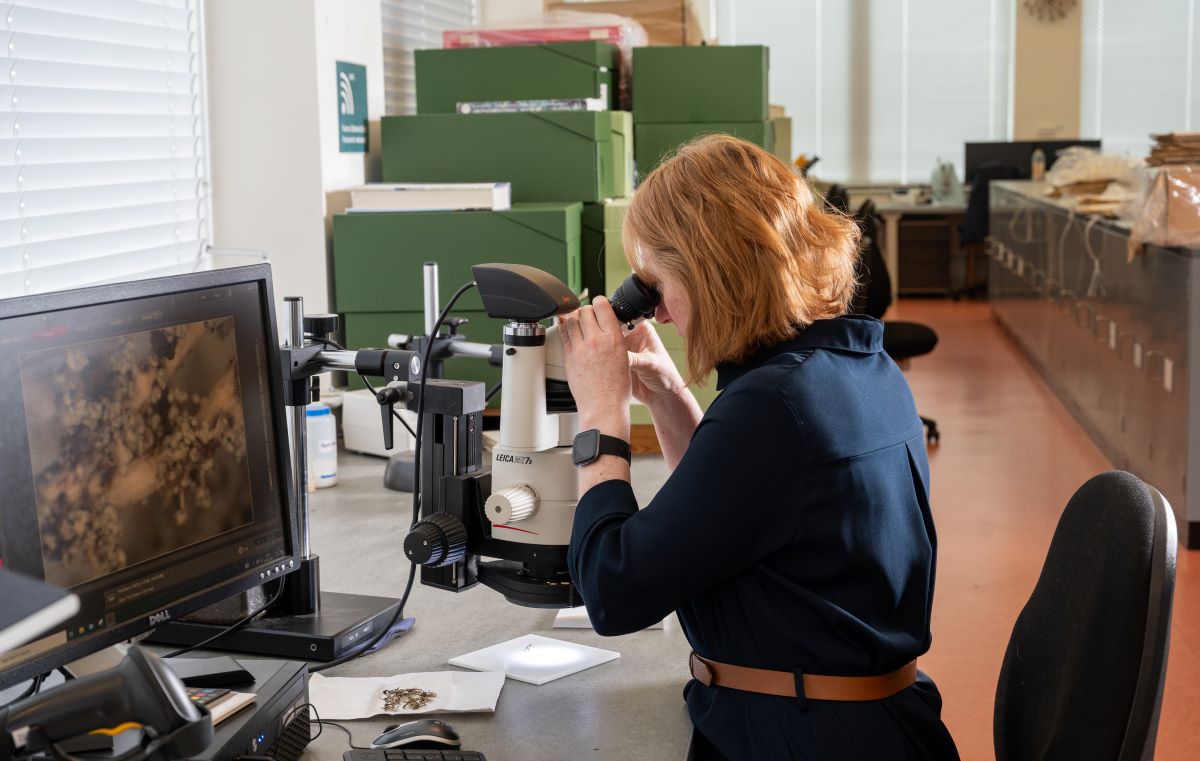
Life With Royal Botanic Garden Edinburgh: ‘Climate change means we’re working against the clock to conserve plants’
Professor Olwen Grace talks to us about working with specimens collected by Charles Darwin and how she choose the one millionth specimen in the Herbarium to be digitalised.
I was raised in quite a rural setting in South Africa and spent my childhood immersed in nature, exploring on horseback and learning about the plants and wildlife. My parents were scientists, so it seems these influences manifested in my career choice.
I joined the Royal Botanic Garden Edinburgh in 2023 and I work with the collections in botanic gardens and museums, as well as studying the evolution of succulent plants.
I love plants, of course, and I’ve developed a curiosity for people too. I particularly love connecting people to our botanical collections.
A typical day starts with a coffee and updates on research and curation projects from my team and students, before I head into meetings. On a research day, I’m in front of the computer, and I slip out for a walk in the garden to think. I usually wrap up with correspondence and planning for the next day, before dashing off to collect my son.
‘It’s fascinating to discover a specimen of a plant previously unknown to science’
Plants and fungi are vital for life on Earth, so it’s my duty to care for these Collections as they are the heritage of future generations.
Scientifically, we’re using the specimens in ways that would amaze scientists from the past, such as estimating the tree of life from DNA sequenced from dried herbarium specimens. In the future they will be used in ways we can’t yet imagine.
The Herbarium represents three centuries of plant collecting around the world, including species on the brink of extinction.

Specimens collected by famous biologists like Charles Darwin and Alfred Russel Wallace are awe-inspiring, but it’s more fascinating to discover a specimen of a plant (or collector) previously unknown to science.
We have huge collections made by our own scientists, such as Dr David Harris, whose work with local scientists in tropical Africa has mapped a hitherto unknown forest ecosystem.
‘One of the most difficult aspects of my job is witnessing biodiversity loss’
Some of our specimens have even been used as a seed source to avoid a species’ extinction. We have a specimen of Calceolaria valdiviana collected in 1903 in South America, which became a ‘seed donor’ in 2008, successfully boosting the genetic diversity of the species in botanic gardens. Every specimen tells a story.
I recently took part in the digitisation of the one millionth specimen in the Herbarium and chose a lichen (Stereocaulon vesuvianum) collected by our scientist Dr Rebecca Yahr on Ben Nevis.
Its genome will be sequenced for the Darwin Tree of Life project, which aims to sequence the genomes of all 72,000 plants, animals, fungi and other living organisms across the UK and Ireland. Our botanical collections at RBGE reflect the amazing diversity of the plant and fungal kingdoms, so it was a tough decision.
One of the most difficult aspects of my job is witnessing biodiversity loss and the impact this has on people’s lives, including my colleagues who care so much about our natural environment.

Climate change means that we’re working against the clock to describe and conserve plants. I’m determined to continue to find new ways to work smarter, so that we can conserve plant biodiversity in Scotland and throughout the world. It’s our toolkit for resilience in the future.
I finish up late afternoon and turn my attention to home life. I’m fortunate in being able to connect with nature and get some exercise within my daily routine which helps me to switch off before I return to my home in north Edinburgh.
Read more from the Life With series here.
Subscribe to read the latest issue of Scottish Field.
TAGS

